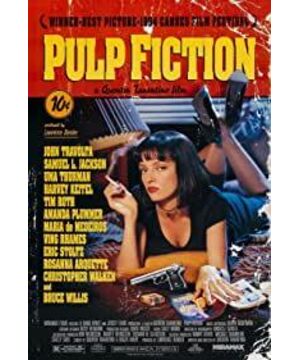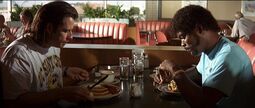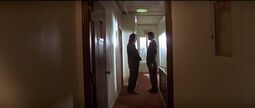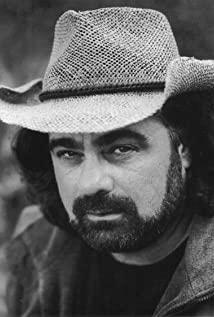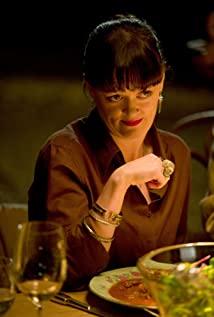"Pulp Fiction" is Quentin Tarantino, this genius with weird temperament, struggling to work hard. , And all kinds of humanity and unchanging destiny that are described in an obscure and implicit manner.
Violence and killing are the themes that the director of ghosts spares no effort to express. "Pulp Fiction" continues to repeat this theme, violence, killing, violence, killing...You have no time to think, you have fallen into it. And Quentin is not simply repeating violence and killing. In each segment, he throws out a humanity puzzle to be solved by you. In the middle of the solution, a new puzzle appears, and in the end you also fall into it. This is The puzzle of fate. In the plot arrangement, the beginning and the end are connected, which complements the theme of the film. Quentin firmly draws the next "circle", the "circle" in the play. At the same time, it also alludes to the "circle" of life and the "circle" of destiny-the repeated, boring and mediocre real life, immutable and inescapable destiny. In the end, Quentin put a constantly rotating kaleidoscope in front of the audience-a subversive way of expressing time and space, so we were also "circled" in, and the film became a classic.
Seeing individuals outside the "circle", everyone is a symbol. The boxer Butch played by Bruce Willis and the killer Jules played by Samuel L. Jackson are two prominent symbolic characters in the film. The former is unyielding; the latter is a killer, but more like a priest trying to purify the human soul. Quentin arranged a strange plot to let Butch escape the hunt, allowing people to see the meaning and hope of persistence. And Jules must read the passage of the Bible before killing, “The path of the righteous is surrounded by the selfishness and brutal injustice of the evil people. Blessed are those in the name of charity and kindness. He leads the weak out of the dark valley. He is the guardian of the brothers and the seeker of lost children. I retaliated against them and rebuked them. They tried to poison and destroy my brothers. When I retaliated against them, they knew I was Jehovah." Maybe it is. The essence of the film may be as Jules said, he just thought about it casually, and the secrets are flooded with it, and the truth is unknown.
In addition, the film is full of metaphors. Butch’s ancestral gold watch, the pornographic publication in the hands of the killer Vicent, and of course the Bible that Jules talked about. You don’t know if the crew used the same props unintentionally, the screenwriter wrote the lines casually, or whether it really meant something. The more obvious one is the relationship between vicent and the bathroom. Several accidents happened when vicent went to the bathroom. In the end, he was even shot in the bathroom. Everything seemed to be arranged in a secret, and whether all the evils were like dirt. What about falling down with flowing water? Perhaps Quentin was hoping for such kindness.
As far as actors are concerned, John Travolta is outstanding. He interprets Vicent the underworld killer vividly, and thus created a new interpretation style of his own. Later, "Change Face" and "Broken Arrow" have the shadow of the vicent image. And Jules played by Samuel L. Jackson is a classic role in movie history. In addition, the most memorable and famous of the film is Uma Thurman and John Travolta's wonderful long-eared bunny twist dance.
Recalling "Pulp Fiction", apart from the exclamation, there are thoughts that bubble up one after another. Perhaps this is another success of the film-infinite tension.
View more about Pulp Fiction reviews


